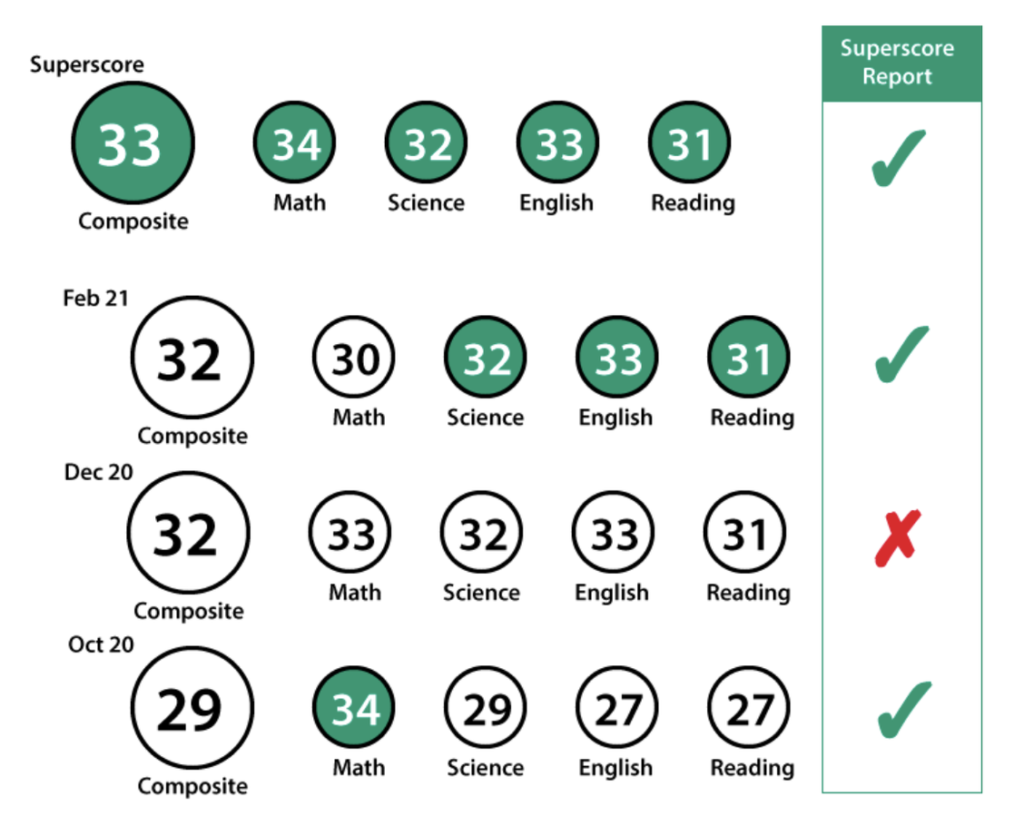SAT vs. ACT… here’s the hard truth about the tests.
Colleges don’t care which test you take. And, for about 70% of students, which exam they take doesn’t seem to matter.
The test everyone is taking is just an example of brand regionality. It’s the universality of Kellogg’s cereal in Battle Creek, Michigan. (Holla at all my W.K Kellogg’s and Kellanova peeps). It’s the ubiquity of Frito Lays on menus in Plano, Texas. But there can be structural reasons to take one versus the other.
I like the ACT right now, barring any significant reason to take the SAT. Here’s why.
Superscoring
Each section of the ACT is its own score. When you submit it to colleges, they are averaged together.
The SAT has two sections in one score: Reading + Writing. No-Calc Math + Calc Math.
From a pure execution standpoint, it’s easier to have a great day on one 35-minute section than two sections totaling more than an hour. But, the flexibility in superscoring allows students who are less STEM-oriented (or more) to diversify their study time. After all, no one wants to spend all their time on what can make them feel stuck, inadequate, or plain unhappy. You can put the ACT Math with the ACT English….
For me, that argument has always been pretty compelling. But it’s not downright convincing–at least in many cases.

The SAT’s future is up in the air, which makes acing it harder to strategize.
Today is all about looking ahead, and the SAT will change format entirely in January (the first US exam in March). You won’t be able to superscore across the old and new tests.
What does this mean? If you nail a perfect math score, you’ll need to get a verbal score to match before the test changes into its new incarnation.
The end of August SAT is a great one for students studying over the summer, but options aren’t so hot after that. You have:
The 3rd week of October (typically around midterms)
The 2nd week of November (typically in the big assignment push before Thanksgiving break)
The 1st week of December (right after Thanksgiving and in the IB crush at the end of that first semester)
Can doing the SAT that way work? Absolutely.
Is it the right choice? It can be.
But it’s water to tread lightly in. It puts an unnecessary clock on a chunk of the process where families should try to maximize flexibility.
You can wait until Spring and the new exam. For some families, it’s a good call. It adds a layer of complexity to a busy spring/summer of 11th grade.
I also worry that the new SAT curves will be all over the place, which is what happened with 2016’s redesign.
I had students get 10+ more math questions right between tests and only get a 10 points increase on their score.
The ACT is much more predictable.
I’m agnostic in terms of which test. I want students to feel comfortable, competent, and in control. But these external factors have led me to actively push the ACT in a way I haven’t before.
I can’t say whether you definitively should take one exam over the other in a mass email. Something that takes 2-hours to explain to a group will take five minutes in a one-on-one with you and your kid.
These trends should inform the SAT/ACT decision. But testing remains a highly personalized process. Kids learn differently. Learning styles are uniquely suited to specific exams. That’s why our test prep, college counseling, and essay coaching will always be one-on-one and adaptive to individual needs.
That conversation is a zoom away.


